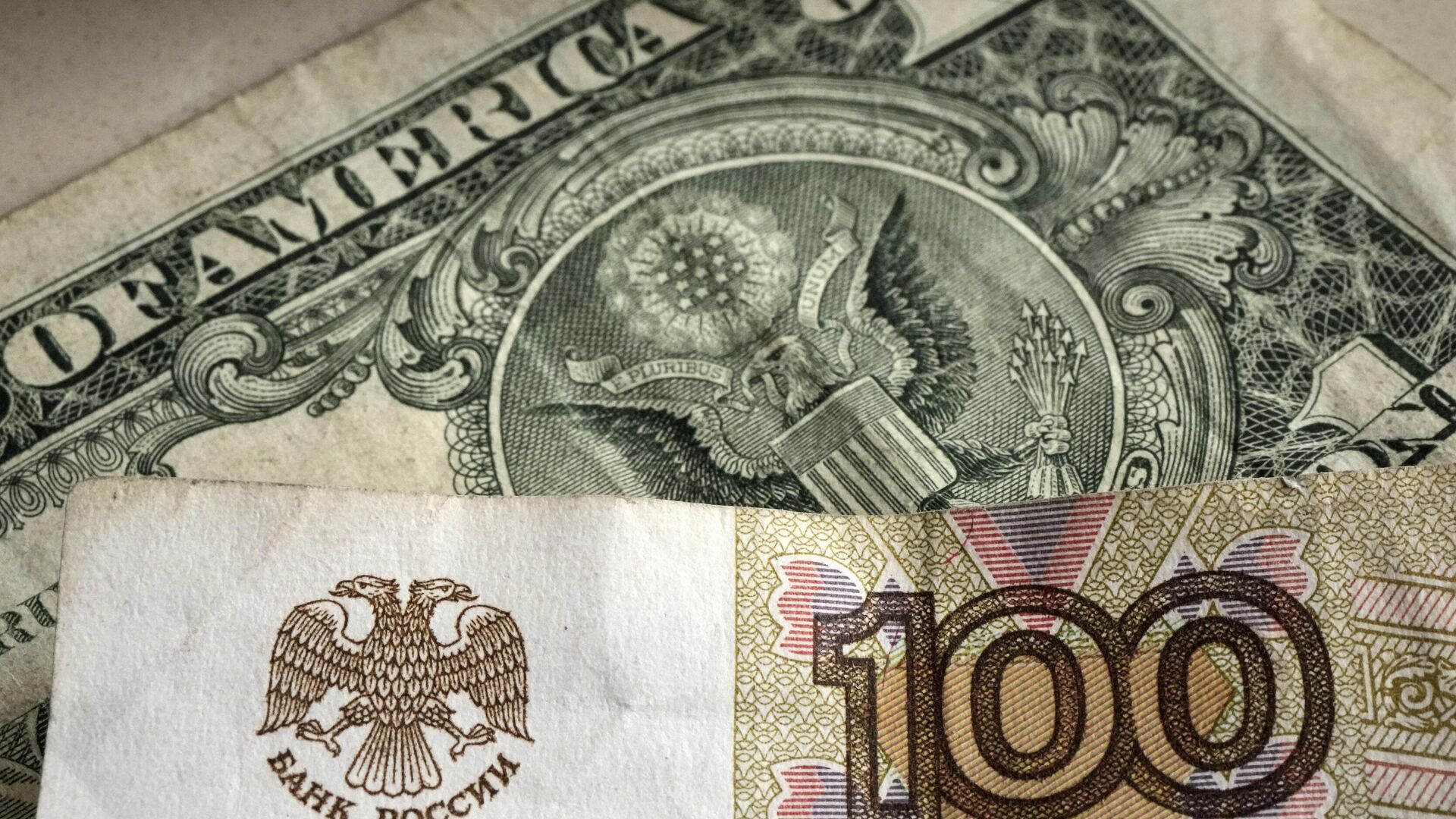https://sputnikglobe.com/20240531/india-russia-oil-for-rubles-deal-another-sign-of-rapid-dedollarization-1118725665.html
India-Russia Oil for Rubles Deal Another Sign of Rapid Dedollarization
India-Russia Oil for Rubles Deal Another Sign of Rapid Dedollarization
Sputnik International
The recently signed deal between India's Reliance Industries and Russia's Rosneft to exchange oil in rubles is another sign of the declining importance of the dollar.
2024-05-31T21:34+0000
2024-05-31T21:34+0000
2024-05-31T21:35+0000
mark sleboda
reliance industries
gazprombank
rosneft
ukraine
russia
india
business
analysis
the critical hour
https://cdn1.img.sputnikglobe.com/img/07e8/01/05/1115987604_0:0:3337:1878_1920x0_80_0_0_5f1557c7c8d50bdc0b4d0e4375c62286.jpg
The transactions will be handled by India’s HDFC Bank and Russia’s Gazprombank, outside of the Western SWIFT (Society for Worldwide Interbank Financial Telecommunications) payment system and immune to the illegal unilateral sanctions placed on Russia by the West.After the start of Russia’s special military operation in Ukraine, Western countries greatly reduced their purchases of Russian oil and gas in a move that was intended, but failed, to cripple the Russian economy.“Since the Western existential economic war of sanctions [against Russia] began in 2022, India’s imports of Russian oil have soared. In fact, the country’s imports of Russian oil have soared tenfold in just 2023,” explained security and international relations expert Mark Sleboda on Sputnik’s The Critical Hour. “So they are buying Russian oil. They’re [getting] a good price on it, making their products more competitive and Europe isn’t getting that cheap, reliable oil.”While India’s purchase of Russian oil angered the United States, it has been hesitant to punish India because it sees it as a potential ally in a future war with China.The decision to make purchases in rubles rather than Indian rupees or US dollars represents another step in de-dollarization that has been spreading across the globe. In the late 1970s, the US dollar represented 85% of global reserve currencies. By 2022, that number had fallen to 58.4%, a trend that has been exacerbated by Western sanctions imposed by Russia and the illegal seizure of Russian assets held in US banks, a decision by the West that had led other world leaders to question the dollar’s dominance.If the US continues on this path, more countries will follow suit, Sleboda predicts. The more the West uses sanctions and payment systems as a weapon in foreign policy, “more of the world’s economy [will slip] outside of their grasp.”
https://sputnikglobe.com/20240531/russia-ranks-as-worlds-no4-biggest-economy-based-on-purchasing-power-parity-1118711623.html
ukraine
russia
Sputnik International
feedback@sputniknews.com
+74956456601
MIA „Rossiya Segodnya“
2024
News
en_EN
Sputnik International
feedback@sputniknews.com
+74956456601
MIA „Rossiya Segodnya“
Sputnik International
feedback@sputniknews.com
+74956456601
MIA „Rossiya Segodnya“
dedollarization, india-russia oil deal, international payments in local currencies, international payments in rubles
dedollarization, india-russia oil deal, international payments in local currencies, international payments in rubles
India-Russia Oil for Rubles Deal Another Sign of Rapid Dedollarization
21:34 GMT 31.05.2024 (Updated: 21:35 GMT 31.05.2024) On Wednesday, it was reported that India’s largest private corporation Reliance Industries and the Russian energy company Rosneft signed a one-year agreement for up to three million barrels of oil per month that will be paid in Russian rubles, putting another nail in the coffin for the US dollar’s hegemony.
The transactions will be handled by India’s HDFC Bank and Russia’s Gazprombank, outside of the Western SWIFT (Society for Worldwide Interbank Financial Telecommunications) payment system and immune to the illegal unilateral sanctions placed on Russia by the West.
After the start of Russia’s special military operation in Ukraine, Western countries greatly reduced their purchases of Russian oil and gas in a move that was intended, but failed, to cripple the Russian economy.
“
Since the Western existential economic war of sanctions [against Russia] began in 2022, India’s imports of Russian oil have soared. In fact, the country’s imports of Russian oil have soared tenfold in just 2023,” explained security and international relations expert Mark Sleboda on
Sputnik’s The Critical Hour.
“So they are buying Russian oil. They’re [getting] a good price on it, making their products more competitive and Europe isn’t getting that cheap, reliable oil.”While India’s purchase of Russian oil angered the United States, it has been hesitant to punish India because it sees it as a potential ally in a future war with China.
“The US keeps trying to rope India into fighting China, serving as proxies for it in their future war with China, which means they don’t want to alienate India too much,” Sleboda said.
The decision to make purchases in rubles rather than Indian rupees or US dollars represents another step in de-dollarization that has been spreading across the globe. In the late 1970s, the US dollar represented 85% of global reserve currencies. By 2022, that number had fallen to 58.4%, a trend that has been exacerbated by Western sanctions imposed by Russia and the illegal seizure of Russian assets held in US banks, a decision by the West that had led other world leaders to question the dollar’s dominance.
“Every night I ask myself why all countries have to base their trade on the dollar,” Brazilian President Luiz Inácio-Lula da Silva said during a speech in China last year. “Why can’t we do trade based on our own currencies? Who was it that decided that the dollar was the currency after the disappearance of the gold standard?”
If the US continues on this path, more countries will follow suit, Sleboda predicts. The more the West uses sanctions and payment systems as a weapon in foreign policy, “more of the world’s economy [will slip] outside of their grasp.”



